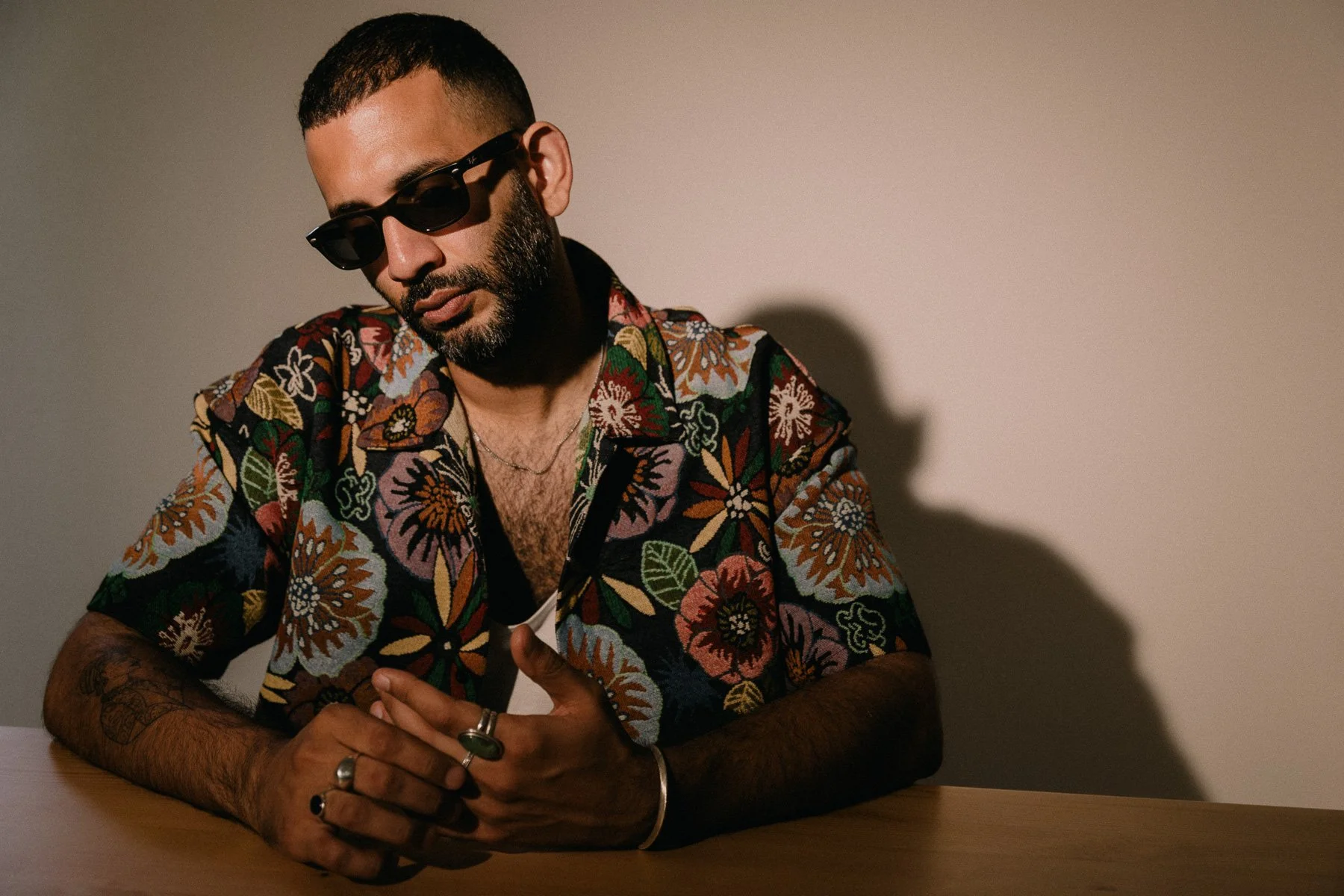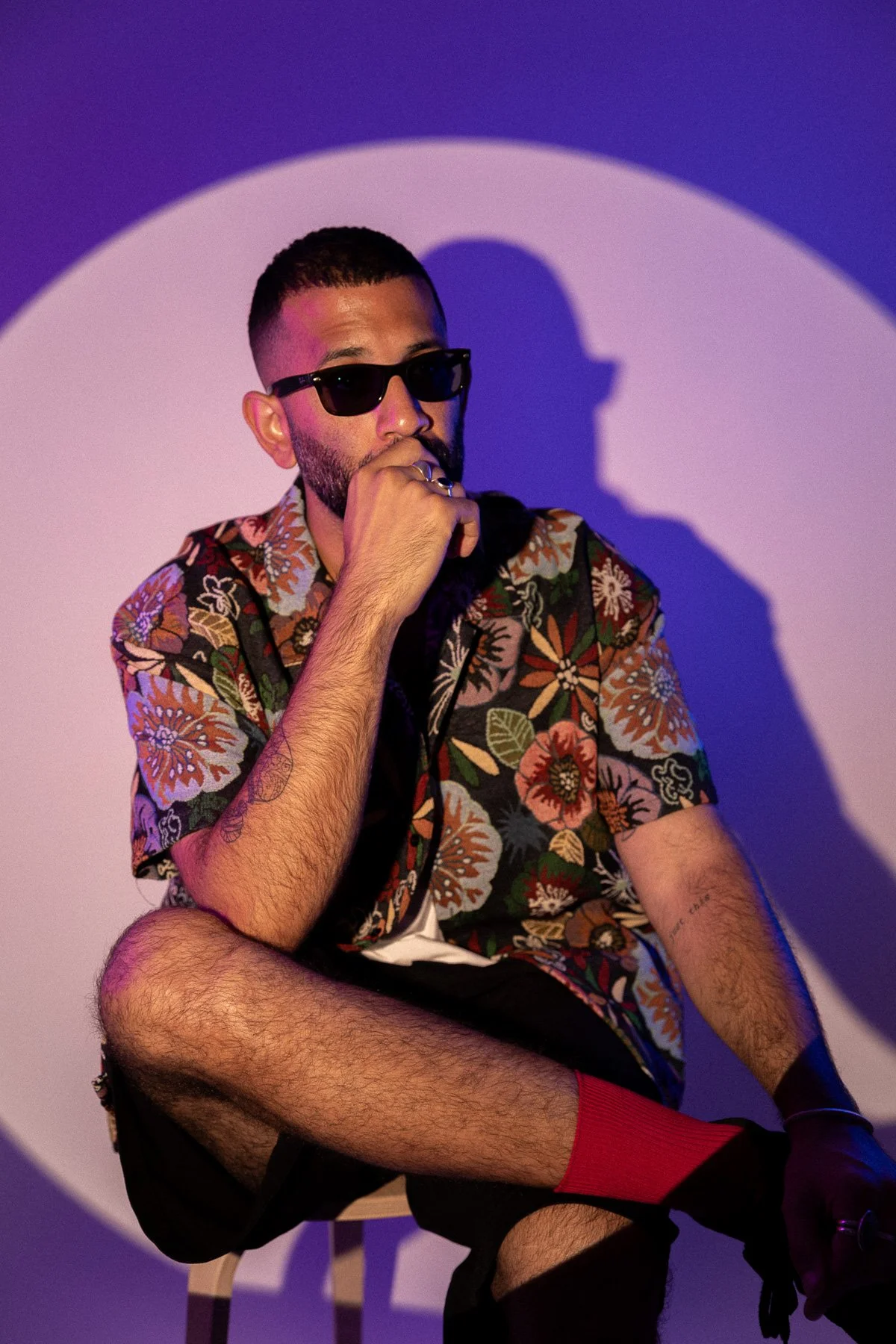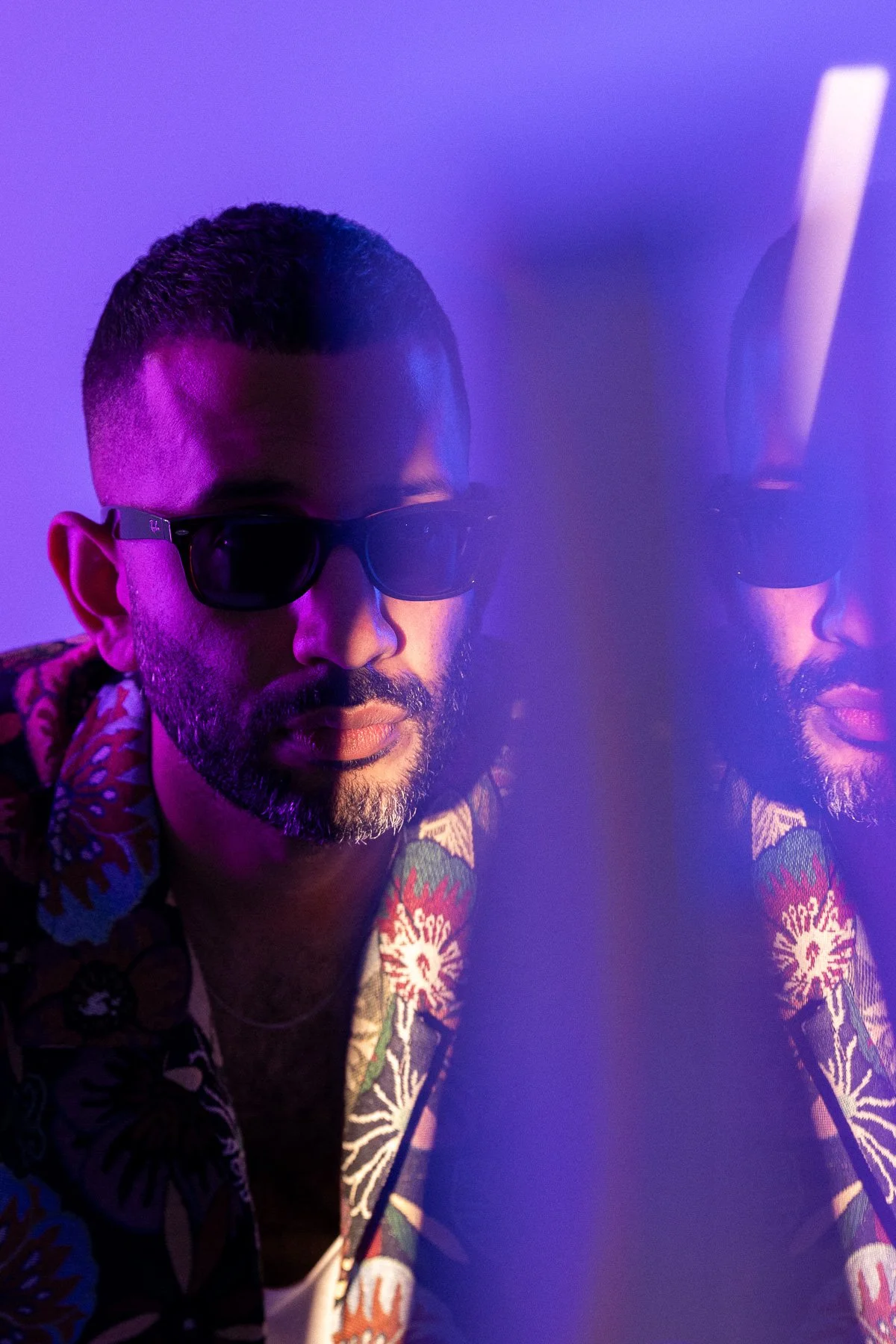Joyously Intertwined
A local artist reflects on the geography of identity, the sacred spaces that shaped him and the revolutionary act of becoming whole
There's something about the way memory crystallises around place - how a 40p bus fare can contain an entire childhood, how the ghost of a closed department store can still hold your mother's Saturday rituals. For Amit Chadda, whose latest EP “Bodies of Water” ripples with the accumulated wisdom of homecoming, the borough isn't just a setting but an active participant in a dialogue about home and identity.
"Croydon holds a really special place in my heart," Chadda reflects, speaking with the deep familiarity of someone who has grown alongside his hometown through all its transformations. Growing up just outside South Croydon, weekend pilgrimages into the town centre became ritual - jumping the 403 green bus, navigating the sensory symphony of Surrey Street market, losing hours in the now-closed Allders department store with all the unhurried devotion that Saturday shopping demanded.
But it's the underground spaces that pulse strongest in his recollection. The Black Sheep bar emerges like a fever dream of possibility - the venue where Thursday nights meant hip-hop and Tuesday meant rock, where a teenager probably shouldn't have been but absolutely needed to be. "It was so inclusive," he remembers. "The music was on point. It was a proper alternative grungy bar and I absolutely loved it."
These spaces held something more sacred than entertainment - they were where transformation happened quietly, one Thursday night at a time. The Green Dragon hosted early performances upstairs. Matthew's Yard became a creative hub where they welcomed exhibitions, live music, spoken word and film screenings. The Oval continues this tradition, treating jazz afternoons and drag shows as different expressions of the same need for connection.
The Architecture of Identity
Perhaps no single moment captures the profound intimacy between place and selfhood like the UK's first-ever Queer South Asian Pride, hosted at Stanley Arts. For someone navigating the complex choreography of being both queer and South Asian in post-colonial Britain, this event represented something approaching the sacred.
"My hometown fused in a whole other way with another element of my identity," he explains. "I didn't really see myself in the people and community that surrounded me growing up, so to have Queer South Asian pride bringing my community together was so beautiful and so moving."
This recognition birthed his 2024 song “Home" - a piano piece featuring bansuri flute played by a queer Gujarati musician - which chronicles the journey from fragmentation to integration. "My queerness and my Indianness now are joyously intertwined," he declares. "They are one, they are the same."
Growing up, he describes a disconnection -his Indianness and queerness existing in parallel universes. But something shifted after leaving a 15-year career and travelling for four months through Asia, including India. Events centred on the queer South Asian community became revelations. "I felt for the first time part of the community that really got the nuances of my experience," he reflects. "What it means to be brown and queer in the country of my people's colonisers."
The Music of Becoming
Music, for Amit, functions less as a career than as a spiritual practice. Childhood memories centre around temple visits, sitting at his grandmother's feet whilst playing Indian drums, absorbing chants and mantras that still inform his sonic palette. "Those sounds stick with me to now and forever," he says. The trajectory from teenage songwriter to the artist releasing “Bodies of Water” traces an evolution from isolation to collaboration, from rigid song structures to what he beautifully terms "sound poems" and "sound paintings." Working with different producers, including former students, represents a full-circle moment of creative community.
"I'm worrying less about lyrics and what they reveal about myself," he admits. "I'm just being much more present. I think of songs as capturing moments and feelings and energies." This vulnerability feels particularly radical given his expanded definition of queerness - not just as an identity marker but as a philosophical framework. "Queerness for me moves beyond sexuality and gender identity,” he explains. "It's about queering and challenging the systems, structures and norms that harm us, that stifle our voices and limit us from living our truths.”
Sacred Anchors
Ask him about staying grounded and the answer comes without pause: "Nature. Nature is my anchor, it's my grounding, it's my inspiration.” Buddhist philosophy has been another constant companion for twenty years, with the local Croydon Buddhist centre becoming an unexpected anchor in his spiritual journey.
What does feeling good look like right now? "Presence and simplicity," comes the immediate response. "That's what feeling good looks like - lack of complication."
The Continuing Conversation
Looking toward the future of Croydon's queer creative scene, he expresses gratitude for platforms like Queer Croydon whilst imagining expanded possibilities: more performances at Stanley Arts, future South Asian Pride events, collaborations with Fairfield Halls.
His hopes for how audiences receive his work centre on transformation as shared practice. "I'm drawn towards music that heals us rather than fragments us," he explains, connecting his current sound palette to those temple memories. "The sounds that I'm drawn to align with the sounds I heard at temple, which were healing."
At its heart, his music serves as an invitation: stories of becoming that others might recognise in themselves, music that delivers "stillness and peace," art that connects rather than divides. It's the kind of gift that can only emerge from someone who has learned to be present to his own complexity, who has transformed the geography of identity from something fractured into something whole. In Croydon, of all places. In music, of all languages. In queerness, of all revolutionary acts.
"My music's very chill," he laughs, but there's nothing chill about the courage required to become this fully yourself, this committed to healing, this willing to let your hometown teach you how to come home to yourself.




